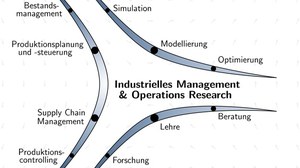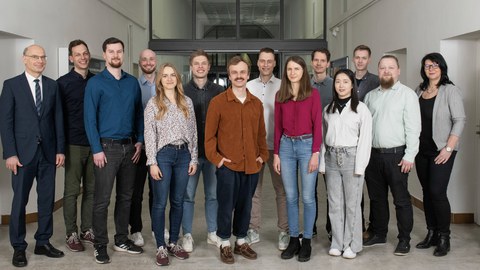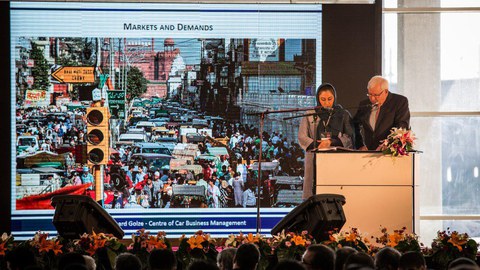About the Chair
Industrial production represents a significant economic sector in Germany. Besides technological developments, sophisticated planning and control systems of production processes are particularly important. At the Chair of Industrial Management economic and mathematical analysis and methods are being used and developed in order to design production processes efficiently and effectively.
 © Udo Buscher
© Udo Buscher
Operations Research in three focused areas
Our main interest in teaching, research and transfer is the optimization of business decisions with a focus on industrial manufacturing, but also beyond. In doing so, we particularly rely on quantitative methods and models of Operations Research and thus work across disciplines at the interface of economics with applied computer science and mathematics. With respect to the decision problems considered and the methodological approach, our team is divided into the three areas of Operations Management, Prescriptive Analytics and Applied Operations.
In the field of Operations Management, our main interest in research, teaching and transfer is to plan, design and control production and logistics systems. The focus is on classical production management and thus on the optimization of strategic, tactical or operational decisions in the production of goods and services. Above all, methods of operations research are applied.
The working group Applied Operations focusses on the application of operations research methods to a variety of practical use cases, even beyond the industrial sector. The aim is to provide decision support based on state-of-the-art research knowledge for real-life situations. For this purpose, the transfer from theory to practice takes place in close exchange across working groups.
The Prescriptive Analytics team investigates the intersection of data analytics and operations research. Companies are constantly collecting more and more data. On this basis, it is possible to determine why something has happened (Descriptive/Diagnostic Analytics), but also what will happen in certain situations (Predictive Analytics). The logical next step is to use state of the art mathematical optimization approaches to support and objectify future decisions in a data-driven manner.
The Supply Chain Operations working group focuses on the modelling and analysis of supply chains using quantitative methods. In particular, game theory methods are applied. These allow interdependencies between actors within supply chains to be taken into account, decision-making processes to be understood and recommendations for practical action to be derived.




